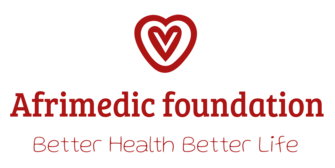Understanding Depression
Depression is a prolonged low mood that significantly impacts daily life. In its mild form, it can cause feelings of sadness and make daily activities seem more challenging. In severe cases, it can be life-threatening and lead to suicidal thoughts.
Transition from Low Mood to Depression
Feeling sad or low is common, but if these feelings persist for more than a couple of weeks or recur frequently, it might indicate depression. Symptoms of depression can range from sadness and withdrawal to feeling numb and empty.
Types of Depression
Depression can vary in severity—mild, moderate, or severe—and these levels can fluctuate over time. Specific types include:
- Seasonal Affective Disorder (SAD): Depression during specific seasons.
- Dysthymia: Continuous mild depression lasting for two years or more.
- Prenatal and Postnatal Depression: Occurs during and after pregnancy, respectively.
- Premenstrual Dysphoric Disorder (PMDD): Severe premenstrual syndrome with significant depressive symptoms.
Symptoms of Depression
Depression manifests in various ways, affecting both feelings and behaviours. Common symptoms include:
- Emotional Symptoms:
- Persistent sadness or low mood
- Feelings of guilt, worthlessness, and hopelessness
- Loss of interest in activities
- Suicidal thoughts
- Behavioural Symptoms:
- Avoiding social interactions
- Self-harm or suicidal actions
- Difficulty concentrating and making decisions
- Changes in sleep and appetite
- Increased use of substances like alcohol or drugs
In severe cases, depression can also involve psychotic symptoms such as delusions and hallucinations.
Causes of Depression
Depression can stem from multiple factors:
- Childhood Experiences: Trauma, bullying, abuse, or neglect during childhood.
- Life Events: Stressful events like job loss, bereavement, or relationship issues.
- Other Mental Health Problems: Conditions like anxiety, bipolar disorder, or PTSD.
- Physical Health Issues: Chronic illnesses or hormonal imbalances.
- Genetics: Family history of depression.
- Substance Use: Effects of medication, recreational drugs, or alcohol.
- Lifestyle Factors: Poor diet, lack of sleep, and physical inactivity.
Self-Help Strategies
Managing depression often involves self-care and seeking support:
- Talking to Someone: Sharing feelings with a trusted person or a helpline like Samaritans.
- Peer Support: Joining support groups or online communities.
- Mindfulness: Practicing mindfulness to stay present and manage symptoms.
- Physical Health: Maintaining good sleep, diet, and exercise habits.
- Staying Active: Engaging in hobbies, volunteering, or setting achievable goals.
- Nature: Spending time outdoors to improve mood.
- Self-Care: Doing activities that bring joy and relaxation.
Treatments for Depression
There are various treatments available to help manage and alleviate the symptoms of depression.
- Self-Help Resources: Books, apps, and websites offering strategies and support.
- Talking Therapies: Counselling, cognitive behavioural therapy (CBT), and other therapeutic approaches.
- Medication: Antidepressants and other prescribed drugs.
- Alternative Treatments: Complementary therapies like acupuncture or meditation.
- Intensive Treatment: For severe cases, more structured and intensive treatments such as ECT or rTMS may be necessary.
- Electroconvulsive therapy (ECT)
- Repetitive transcranial magnetic stimulation (rTMS)
It’s important to find a treatment plan that works best for you and to seek professional help if needed. Different strategies work for different people, and recovery can be a gradual process.
Additionally, there is guidance on what to do if a treatment isn’t effective.
Involvement in Treatment
You have the right to be involved in decisions about your treatment. The type of treatment recommended will depend on the severity of your symptoms and your personal preferences.
Self-Help Resources
Self-help resources might be recommended initially, especially for mild depression. These can include:
- Self-help Programmes: Guided self-help manuals with support from a healthcare professional.
- Computer-based CBT (CCBT): Programs like Beating the Blues that help challenge negative thoughts.
- Physical Activity Programmes: Group exercise classes designed for people with depression.
Talking Treatments
Different talking treatments effective for depression include:
- Cognitive Behavioural Therapy (CBT)
- Group-based CBT
- Interpersonal Therapy (IPT)
- Behavioural Activation
- Psychodynamic Psychotherapy
- Behavioural Couples Therapy
Your doctor or mental health professional can discuss available options and help you find the right one.
Medication
If other treatments haven’t helped, antidepressants might be offered. Types of antidepressants include:
- Selective Serotonin Reuptake Inhibitors (SSRIs)
- Serotonin and Norepinephrine Reuptake Inhibitors (SNRIs)
- Tricyclics and related drugs
- Monoamine Oxidase Inhibitors (MAOIs)
- Other antidepressants
It’s important to discuss options with your doctor, as different medications work for different people.
Coming Off Medication
If you decide to stop taking medication, it’s crucial to do so gradually with professional support to avoid withdrawal symptoms and other risks. NICE guidelines recommend continuing antidepressants for at least six months after recovery to prevent relapse.
Alternative Treatments
These can be used alongside or instead of traditional treatments and include:
- Arts therapies
- Alternative and complementary therapies
- Mindfulness
- Ecotherapy
- Peer support
Your doctor or local Mind organization can provide information on accessing these treatments.
Treatment for Severe and Complex Depression
For severe cases, specialized mental health services might offer:
- Combination treatments (talking therapy and medication)
- Medication for psychotic symptoms
- Crisis resolution services
- Hospital admission for severe cases at risk of suicide or self-harm
Electroconvulsive Therapy (ECT)
ECT is a last-resort treatment for severe depression when other treatments have failed or the situation is life-threatening.
Repetitive Transcranial Magnetic Stimulation (rTMS)
rTMS is offered for severe depression that hasn’t responded to other treatments, involving daily sessions over several weeks. It’s available in limited NHS trusts and some private clinics in the UK. Not available in Nigeria.
What if Treatment Doesn’t Work?
If a particular treatment doesn’t work, alternative options should be explored. Recovery is a journey, and it can be helpful to focus on coping strategies rather than eliminating all symptoms.
Support for Friends and Family
Friends and family can play a crucial role by:
- Supporting the person to seek help.
- Being open about depression
- Keeping in touch
- Avoiding criticism
- Helping with practical tasks
- Taking care of their own wellbeing
Useful Contacts
